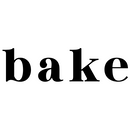Are Cookies Halal? A Comprehensive Guide
In recent years, the question of whether cookies are halal has gained significant attention among those who follow a halal dietary lifestyle. Halal, which means "permissible" in Arabic, refers to food and beverages that adhere to Islamic dietary laws. While cookies are a beloved treat worldwide, it's crucial for those who follow a halal diet to determine whether these sweet delights align with their religious dietary requirements. In this comprehensive guide, we will delve into the ingredients, production methods, and considerations regarding cookies and their halal status.
Understanding Halal Dietary Laws
Before delving into the specifics of cookies, it's essential to understand the fundamental principles of halal dietary laws. In Islamic tradition, there are clear guidelines on what is permissible (halal) and what is forbidden (haram) when it comes to food consumption. The key principles include:
- Prohibited Ingredients: Any ingredient derived from pork, alcohol, or animals not slaughtered in accordance with Islamic laws is considered haram.
- Cross-Contamination: The risk of cross-contamination with haram ingredients during production must be minimized.
- Intentional Misrepresentation: Any form of intentional misrepresentation or fraud regarding halal status is strictly prohibited.
Now, let's explore whether the cookies we commonly enjoy meet these criteria.
Ingredients in Cookies
Flour and Grains
The primary ingredient in most cookies is flour, typically derived from wheat. Wheat itself is considered halal. However, it's essential to ensure that no alcohol-based additives or flavorings are used in the flour mixture.
Sugar
Sugar is another crucial component in cookies. Plain sugar is generally considered halal, but caution must be exercised regarding flavored or colored sugars, which may contain haram additives.
Fats and Oils
Cookies often contain fats and oils for texture and flavor. Vegetable-based fats and oils are typically halal, but it's vital to verify their sources and processing methods.
Flavorings and Additives
This is where things can get tricky. Many cookies contain flavorings, colorings, or additives. Some of these may contain alcohol-based ingredients or haram substances. It is essential to scrutinize the ingredient list for any questionable additives and opt for products with halal-certified flavorings.
Production Methods
Apart from ingredients, the production methods play a significant role in determining the halal status of cookies. Here are some key considerations:
Cross-Contamination
To be considered halal, cookies must be produced in facilities where there is no risk of cross-contamination with haram ingredients. Manufacturers that adhere to strict halal standards take measures to ensure this, including separate production lines and thorough cleaning processes.
Halal Certification
One of the most reliable ways to identify halal cookies is to look for products with recognized halal certification symbols. These certifications guarantee that the entire production process, from ingredients to packaging, complies with halal standards.
Conclusion
In conclusion, whether cookies are halal depends on various factors, including the ingredients and production methods. To ensure you are consuming halal cookies, always check the ingredient list for haram components, look for recognized halal certification symbols, and consider the manufacturer's reputation for halal compliance. By making informed choices, you can enjoy your favorite treats while adhering to your halal dietary requirements.
📍 Visit us: 6430 S Decatur Blvd #600, Las Vegas, NV 89118
📱 Shop Phone: 702-530-2336
🌐 Check out our Cookies: BakeTheCookieShoppe.com
Follow us on Instagram
Follow uson Tiktok








Leave a comment